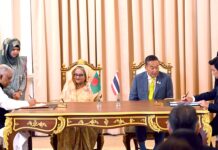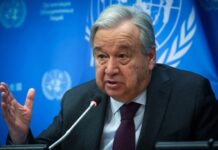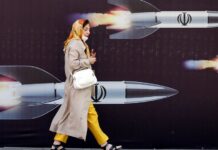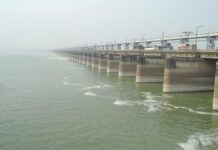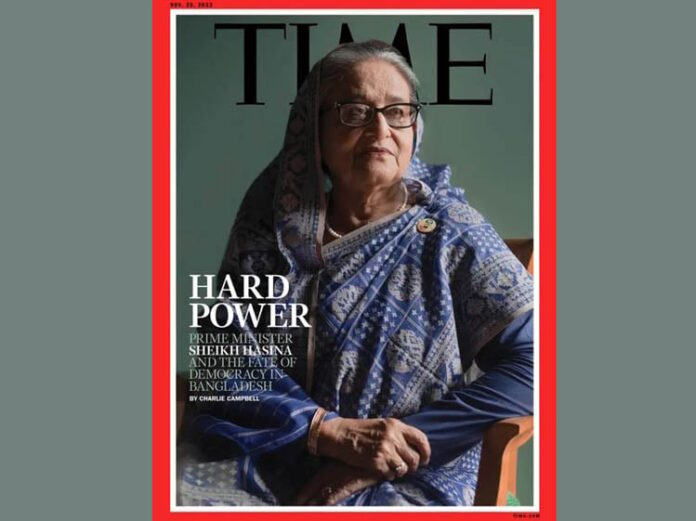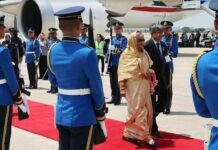TIME has published its latest issue with cover report on Bangladesh Prime Minister Sheikh Hasina who told the globally acclaimed American weekly that it was not easy to overthrow her “through a democratic system” as she enjoys wide public support.
“It is not that easy to overthrow me through a democratic system,” she told TIME which carried its nearly 3,400-word cover report titled “Sheikh Hasina’s Grip on Power” on November 2. The story was jointly written by Charlie Campbell in Dhaka with Astha Rajvanshi in London.
She added: “The only option is just to eliminate me. And I am ready to die for my people.”
“I am confident that my people are with me,” she said in an interview with TIME earlier in September. “They’re my main strength,” she added confidently.
The globally reputed magazine termed Sheikh Hasina’s economic achievements as impressive, saying that Bangladesh has gone from struggling to feed its people to a food exporter with a GDP rising from $71 billion in 2006 to $460 billion in 2022, making it South Asia’s second largest economy after India, it said, adding that social indicators have also improved, with 98% of girls today receiving primary education.
It said Bangladesh is moving into high-tech manufacturing, allowing international firms like Samsung to extricate supply chains from China. “We need to improve, of course, when it comes to democracy, human rights, free speech,” the magazine quoted Professor Mohammad Ali Arafat, an Awami League lawmaker from central Dhaka as saying. “But we have come a long way,” he added.
The magazine said in office since 2009, after an earlier term from 1996 to 2001, she is the world’s longest-serving female head of government and credited with subduing both resurgent Islamists and a once meddlesome military. Having already won more elections than Margaret Thatcher or Indira Gandhi, Hasina is determined to extend that run at the ballot box in January.
In the story Sheikh Hasina derided the BNP as a “terrorist party,” which “never believed in democracy,” stressing its creation by a former junta. “Khalid Zia ruled like a military dictator,” she said with undisguised venom. Hasina highlighted the violence BNP supporters have caused in arson attacks following the disputed 2018 election, it added.
What a fourth straight term for Sheikh Hasina would mean for Bangladesh is a polarizing question, it said, adding most Americans know the country only from labels sewn into their tees and pants, but it’s a crucible that mixes a Muslim population bigger than any Middle Eastern nation with a significant minority of some 10 percent Hindus, Buddhists, Christians, and others. Although constitutionally secular, a military dictator in 1988 made Islam the state religion, creating a paradox that has proved fertile ground for radical fundamentalists, it added.
In the story Sheikh Hasina cited her government’s introduction of transparent ballot boxes and registration papers linked to ID cards and biometric data as evidence of her commitment to free elections. After her father’s murder, Hasina and her sister took refuge in the home of Bangladesh’s ambassador to West Germany before eventually being granted political asylum in India. Hasina was only permitted to return to Bangladesh in 1981, when she was mobbed by thousands of Awami League supporters and spent the following years agitating for popular elections and the end of military rule.
“It was our struggle,” she said “The right to vote, the right to food. That was our slogan,” Sheikh Hasina added.
It said Bangladesh began Islamification in earnest under Ziaur Rahman in 1977. His BNP today remains allied with more conservative groups, while Bangladesh’s religious minorities have traditionally favored the Awami League. “Dhaka has used counterterrorism imperatives as a pretext to crack down harder on the Islamist elements of the opposition,” says Kugelman, of the Wilson center. Counterterrorism today provides a fig leaf for broad state repression. Ganguly calls actions by police at recent BNP rallies “provocative … which has of course led to retaliation.”
Time said Bangladesh matters as it is the largest single contributor to U.N. peacekeepers and regularly joins exercises with the U.S. Indo-Pacific Command. Its vibrant diaspora is intrinsic to business and artistic communities across Asia, Europe, and the Americas, it said, adding that the U.S. is the biggest source of foreign direct investment and the top destination for Bangladeshi exports.
Highly appreciation Sheikh Hasina’s stand on Russia-Ukraine conflicts, it said, “And as one of the few developing world leaders to (albeit belatedly) condemn Vladimir Putin’s invasion of Ukraine, Hasina has proven herself useful for the West, not least for taking in some one million Rohingya refugees from neighboring Myanmar.
The Magazine said hostage to its size and geography, Bangladesh has artfully balanced U.S. ties with links to India, China, and Russia. The latter, in particular, has a significant history of people-to-people relations dating back to the Cold War, with Russian institutions hosting Bangladeshi students and civil society, it said, adding that the risk is that pressing too hard pushes Dhaka away from Washington and closer to Moscow and Beijing. To date, Hasina has both abstained from and supported U.N. resolutions calling for Russia to withdraw from Ukraine.
“On some issues, we didn’t vote against Russia; then on some other issues, we vote against Russia,” she said, adding without a hint of irony: “Our position is very clear.”
When asked about the Rohingya, Hasina reminded the world that “for six years my sister and myself lived outside the country as refugees, so we can feel their sorrow and pain.”
“It’s a big burden for us,” she said. “The U.N. and other organizations that are supporting (the Rohingya) here can also do the same inside Myanmar.”



